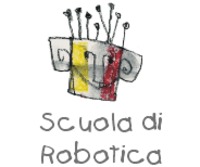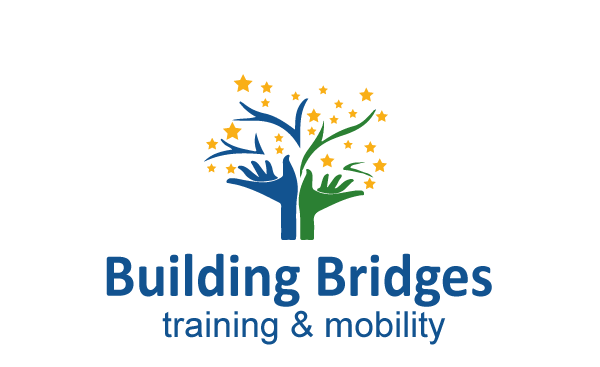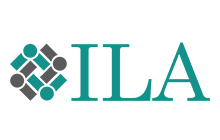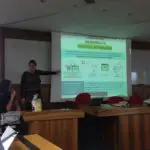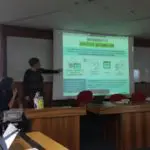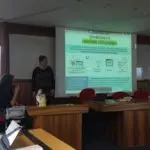The project No Gender Gap!, co-funded by the Erasmus+ programme of the EU, has been
launched by the partnership formed by Building Bridges Association from Spain, Scuola di
Robotica from Italy, Weltgewandt from Germany and the International Labour Association from
the Netherlands.
no gender gap
KA2 project.
Project description
Technology and digitalization will be a nursery for new jobs in the coming years. Specifically, according to Randstad, 390,000 direct jobs related to science, technology, engineering and mathematics in Spain alone. However, if the trend does not change dramatically in a short time, most of these positions will be filled by men, and therefore, the gender gap will only grow.
Only 15.4% of specialists in information and communication technologies (ICT) in Spain were women in 2016. A level slightly lower than that of the European Union (EU), which stood at 16.7%, according to the community statistical office, Eurostat.
The figures show that women are «underrepresented» among ICT specialists in all Member States. This contrasts strikingly with the proportion in total employment. According to Eurostat data, both sexes are more equalized in the results of generalized employment (53.9% of men and 46.1% of women).
Through this project we propose to include a set of basic skills for the professional development of training curricula in women. Therefore, we have formed a partnership composed of entities with experience in training and integration of women, eager to contribute their know-how to a transnational project.
The objectives facing the project are the following:
-improve the attractiveness of STEM disciplines (Science, Technology, Engineering and Mathematics) through the use of robotics and automation, which have proven to be a means of successful involvement.
– Promote digital literacy and critical thinking in women, especially those in situations of social exclusion and belonging to disadvantaged groups, thus reducing the gender gap and improving access to the labor market;
– To improve the professional competences of teachers through new methodological approaches
– Create new international approaches aimed at reducing gender inequalities in access and participation in new technologies
– To capture the attention of women towards the ICT industry and especially in robotics, emphasizing those activities with more possibilities of achieving an effective insertion in the labor market.
– Offer training centers with a gender perspective that allows them to rethink their training approach and seek opportunities for a more egalitarian sector.
-Establish advisory measures that facilitate the transition of the technology industry towards greater gender awareness and balance.
-Increase the recognition of competencies and create the conditions that allow the realization of new programs with greater performance.
The project is aimed at both educators and women at risk of social exclusion and belonging to disadvantaged groups (eg unemployed, victims of gender violence, refugees, without university studies, residents in rural areas) who want to improve their skills professionals in a sector where high demand from companies in the world of ICTs can significantly reduce the unemployment rate.
The partnership agrees to carry out a project that can have beneficial effects on educators, trainers and women and can increase their personal and professional influence on the Internet to reduce gender gaps, promote the social and labor insertion of women and generate a community of women with greater interest in the use of technology to promote entrepreneurship and self-employment.
The entire partnership wants to contribute to internationalize their experiences and improve their knowledge in order to achieve the common objectives mentioned above, specifically in a sector and towards a target group currently considered a top priority for European strategies for inclusion, education and employment.
The project will also produce innovative approaches, methodologies and tools that will be useful internationally, as they are translated into multiple languages and easily accessible. Finally, the visibility of the results of the project will have an impact on different stakeholders that will significantly improve the international visibility of the partners and at the same time improve the perspective of European policies on employment and education issues, contributing to reducing the current euro skepticism. in many areas of European society.
Target groups

Women
Women women at risk of social exclusion

Disadvantaged groups
(eg. unemployed, victims of gender violence, refugees, without university studies, residents of rural areas)

Fill the questionnaire
SOON

Motivation
Motivation and willing to learn robotics from scratch
Objectives
The project is aimed at both educators and women at risk of social exclusion and belonging to disadvantaged groups (eg. unemployed, victims of gender violence, refugees, without university studies, residents of rural areas) who want to improve their professional skills in a sector where the high demand in the world of ICTs can significantly reduce the unemployment rate. The partnership will work in the realization of a MOOC for the creation of a robot. Besides, a methodology guide including innovative tools and approaches for teachers will be created. The partnership will also work on the recognition system of the competences acquired and each of the partners will experience an improvement in their operational capacity thanks to the internationalization of their activities.
Meetings
The partners involved in this project, who had their first transnational meeting in Madrid, Spain, between the 29th and the 31st of October, and who will meet again in Genoa, Italy, in April 2019, will work together in this project until September 2020. II Transnational Meeting “No gender gap” in Genova

Partners
Set of competences for the professional development of the training curricula in women
more info about project managers
Jose M. Imbert
Jose Maria Imbert is a holder of a BSc in Business Management. He has garnered most of his experience in the communications field as a content developer and content manager for several NGOs. He joined the Building Bridges team in November 2018 as a curriculum developer for informal education modules and content manager, subsequently as a Project Manager and as responsible strategic partnership building.
Fiorella Operto.
Fiorella Operto. Educated in Philosophy, she collaborated with the Italian Research Council on the social impact of Advanced Robotics applications. In 2000 she founded the School of Robotics Society, and is its Deputy Chair today. Operto contributed to the definition and application Roboethics (Ethical, Legal, and Societal Issues in Robotics).
She is Member of the highlevel Advisory Committee for ECWT (EU European Centre for Women & Technology), Consultant and member of “The Open Roboethics Initiative”and Ambassador of the European NAO Challenge.
Mehmet Altunbas
Mehmet Altunbas has worked as a training expert and project manager in NGOs and public bodies for more than 15 years. As an active project manager, he has taken part in various research, development and application phases of youth, VET and adult education
projects. Having worked at education departments throughout his entire career, he has experience in instructional design and training delivery with nonformal methods. Altunbas worked at the Ministry of Labour and Social Security as a senior training expert. He was one
of the members of the “Agriculture Advisory Committee” which had a crossministerial function on OSH practices. As a project writer and manager he has taken role in various EU projects, attended symposiums as a speaker and to the seminars as a trainer. Altunbas joined the ILA team as the Director of organization.
Andrea FUI
Andrea Fui. Born on 26/12/84, he has got the triennial degree in Computer Science in 2010 (University of Genoa), and in 2013 the triennial degree in Psychology (University of Genoa). He is collaborating with the School of Robotics about the issues of Educational robotics for SEN students. He is expert of using educational robotics and a humanoid robot NAO for kids 814 with special educational needs.
NINO VERSACE
Nino Versace is one of the founders of Building Bridges and informal education curriculum builder and project manager team lead. Nino’s expertise in EU project writing and managing stems from his 10+ years experience in the field. He is currently the No Gender Gap project
manager.
James Birch and Lisa Gomes - Previform
.
With the support of:

Erasmus+
Impact
The realization of a project for the elimination of the gender gap, the digital literacy of women and the training in the robotics sector for teachers and educators will have numerous benefits in all the actors involved in the project and in the local communities of each partner
The impact among the participants will be the following:
-More adaptation of the training experience to your personal and professional needs, experience, education, passions, obtaining high quality learning results, thanks to the use of new technologies such as coding and robotics.
-Development of new professional skills and specific knowledge, increasing their creativity, entrepreneurial spirit and competitiveness in the workplace, and ultimately their employability
– Strengthening of their personal abilities, and especially their ability to assume responsibilities and make decisions independently as a result of increasing their self-esteem and knowledge of their own strengths and limits, critical thinking and initiative capacity.
-Increase the participation of women at risk of social exclusion in the cultural and social life of the territory itself, even beyond the project activities;
-Increase the ability to work as a team and develop specific technical skills that require dialogue and thinking to achieve the intended objectives;
-Promotion of civic values such as intercultural dialogue and tolerance, greater openness to diversity, contributing to progress towards a more open and respectful Europe.
-More awareness of the benefits of European policies in education and employment, reducing the sense of euro skepticism and encouraging the development of a European dimension among female students.
Multiplier events
Spain
20-21 August 2020.
Portugal
27-28 August 2020.
Holland
3-4 September 2020.
Germany
10-11 September 2020
Italy
17-18 September 2020.
Comments
Add a comment
Deja una respuesta
You must be logged in to post a comment.

